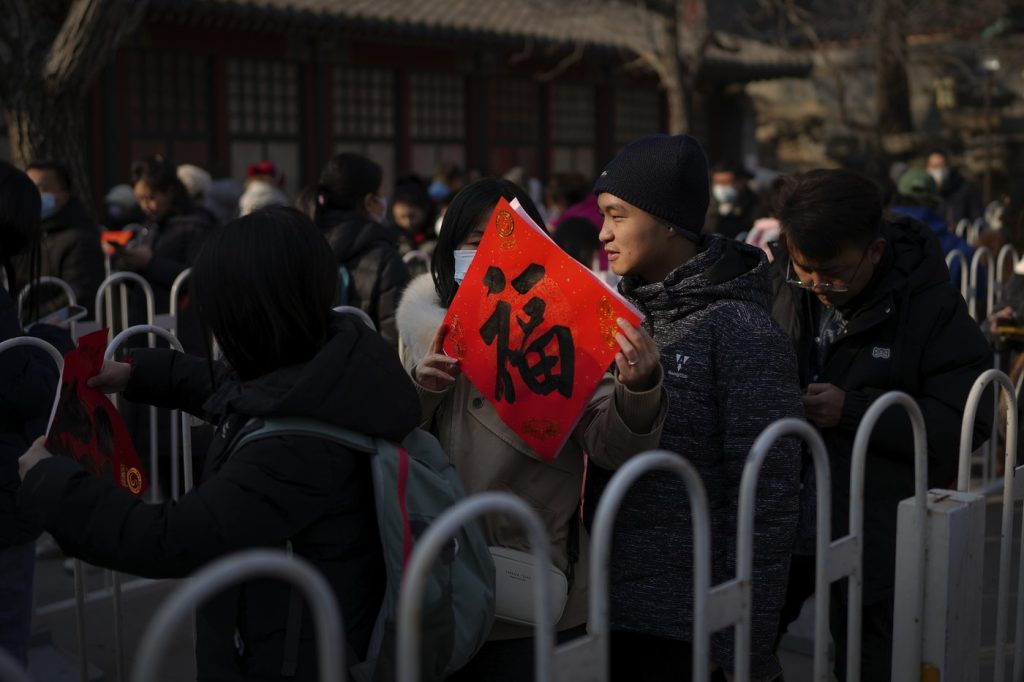BANGKOK (AP) – The Chinese government is implementing measures to stimulate the country's lagging stock market by mandating that pensions and mutual funds increase their investments in domestic stocks. This initiative seeks to invigorate share prices and establish a more robust economic environment leading into the Lunar New Year, a significant period for spending in China.
Chinese officials announced that, starting this year, mutual funds are required to boost their holdings in onshore stocks, known as A-shares, by at least 10% annually over the next three years. Additionally, commercial insurance funds will now be obligated to allocate 30% of their new annual premium revenue towards the share market. Wu Qing, the chairman of the China Securities Regulatory Commission (CSRC), stated that this strategy will inject several hundred billion yuan into A-shares each year.
According to Wu, the planned measures are expected to enhance the equity allocation capacity of medium- and long-term funds. This approach aims to steadily increase the scale of investment, improve fund supply and structure in the capital market, and bolster conditions necessary for the market's recovery. The announcement comes just before the Lunar New Year, which begins on January 29, 2025, a festive season when many families typically increase their spending on travel and gifts.
Market responses to the announcement have shown initial optimism. On Thursday, January 22, both the Hong Kong and Shanghai markets experienced early gains, with the Shanghai Composite index initially rising nearly 1.5% and stabilizing at a 0.8% increase by midday. Meanwhile, the Hang Seng Index in Hong Kong lost early momentum and ended nearly unchanged.
China’s equity markets have historically been volatile, reaching their peak value prior to the Asian financial crisis and subsequently falling below this benchmark. The stagnation in share prices and declining housing prices have contributed to diminished consumer spending, directly impacting overall economic growth. While government initiatives to encourage consumer spending have yielded mixed results, there has been a persistent struggle to sustain share prices, which have often traded in a narrow range even following a brief rally in late 2024.
Wu emphasized the importance of this plan, indicating that pension funds would need to revise their performance assessment strategies. He also noted that companies would be encouraged to undertake more share buybacks and increase dividends to enhance shareholder returns. This reform is portrayed as a significant institutional breakthrough, aimed at addressing long-standing issues in attracting medium- and long-term investments in the market.
Furthermore, a commentary from Lei Meng, an equity strategist at UBS Securities, highlighted the challenges facing the Chinese stock market, including substantial sell-offs by major shareholders and high volatility. These factors have resulted in a decrease in the willingness of long-term investors to participate actively in the market. Lei suggests that the proposed market value management reform directly tackles these issues, aiming to enhance investors' sense of gain.
As China's authorities strive to stabilize and invigorate the stock market through strategic policy changes, there is cautious optimism regarding the potential for revitalized economic growth and increased market participation among long-term investors.










